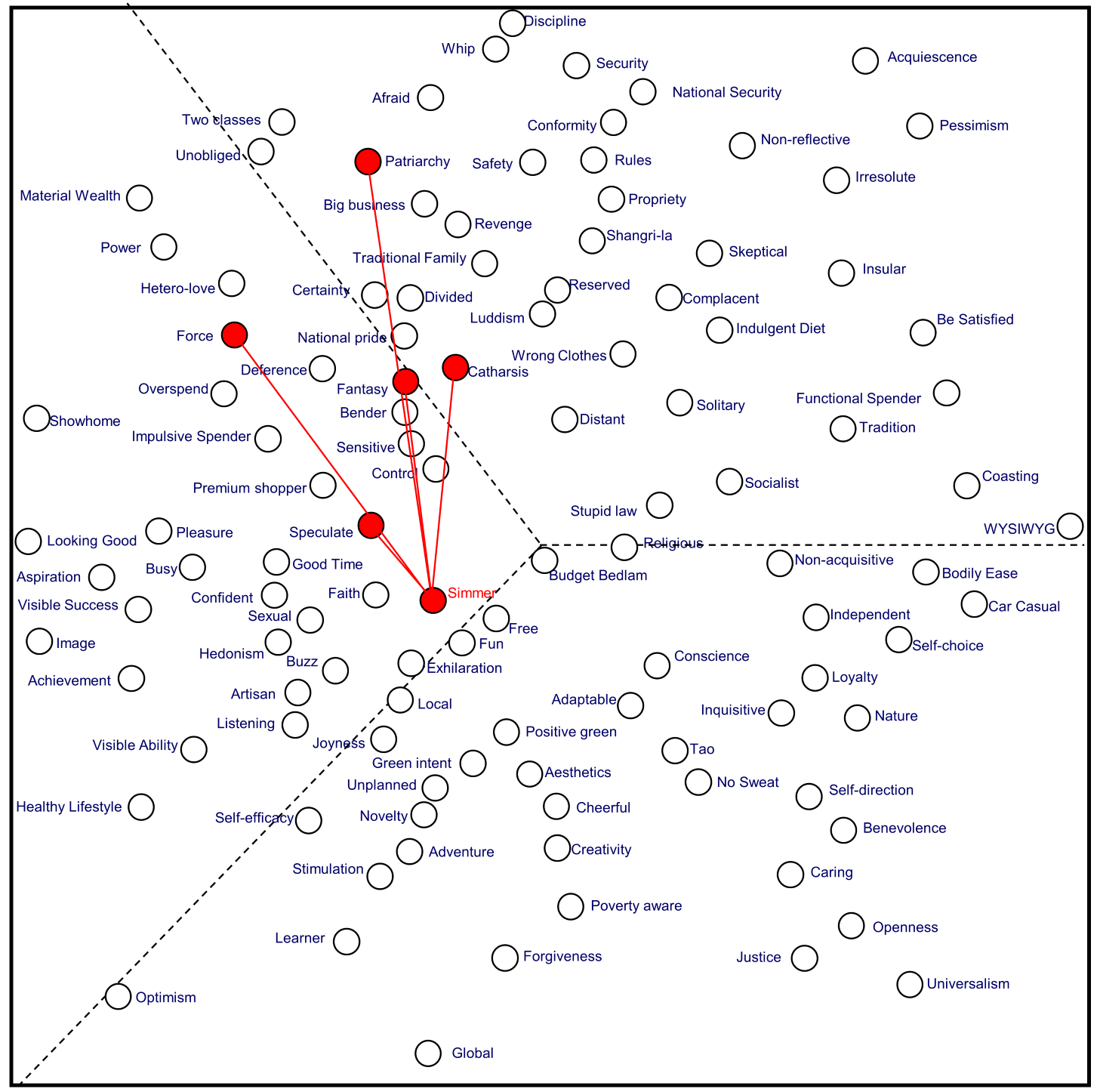

SIMMER
 |
The thought of social disorder excites me. I would enjoy being involved in a street riot.
One in five people get excited by the prospect of social disorder and fantasise taking part in forms of public demonstrations of social disorder. Though this more likely to remain a fantasy, it nevertheless is a latent aspect of potential behaviour that can explode in the right circumstances.
Bubbling beneath the surface of their lives is a fundamental conflict between the need for revolutionary change and an equally strong need for things to stay the same. For them, the resolution of this dilemma is to fulfil their need to be respected, perhaps feared, by those around them; as they decide and enforce what will change and what will not change in their lives.
This attribute identifies a group of individuals who are moving from a concentration on home, family and community to a focus more oriented towards success and to standing out as individuals. This is a precarious position, where they try to maintain some stability in their lives, whilst they take advantage of emerging opportunities. As they change, they may feel threatened by any external changes in their environment or people around them. They may also find it difficult to get a handle on reality, as they let get of one set of values and embrace their more aspirational and competitive needs.
Appealing significantly more to men and individuals under 34 years of age, there is a slight skew towards skilled workers (C2), otherwise it is evenly spread across all of the socio-economic groups. Found across society, such people often use the threat of aggression to get their own way. They like to be in control, to tell others what to do and often find themselves resisting the trends towards collaboration and consensual decisions.
This correlates with their beliefs about gender roles. Whether espousers are men or women, they believe that men should be men and women should be women. Believing that male and female roles need to be clearly defined and delineated, they prefer women to focus on family and the home, and men to be the primary breadwinners. They do not see these values as old hat; they believe that many social problems stem from the blurring of boundaries between the sexes, resulting in confusion and misunderstandings across society.
Being gamblers at heart, they love to take risks, because it makes them feel alive and they do not like waiting for something to happen. Boredom is always knocking on their door, threatening to stifle their lives, so they are always looking for ways to keep their minds and their bodies active. And sometimes it swings the other way, where they are so full of energy that they need an outlet to relieve the tension. Violence is an option and may be the answer when things get too much.
This attribute is alive and flourishing today, but it may be clothed in rhetoric and spin, and directed against people who they consider to be outsiders, or a threat to the status quo. At worst, this attribute fuels change for its own sake, and, at its best, could be the source of moral outrage directed towards challenging lies, corruption and abuse of power by individuals and organisations.
Using SimmerDemographic Skews: 1) Over-indexed: Male, under 35. 2) Under-indexed: Female, 55+. Simmer espousers also espouse other Attributes. The top five most highly correlated Attributes of Simmer espousers are, in order of the strength of relationship: 1) Force In total those who espouse Simmer also over-index significantly on 34 other Attributes. |
|
If "Simmer" (or the associated attributes) are important to you and you would like to delve more deeply, contact us at mail@cultdyn.co.uk
